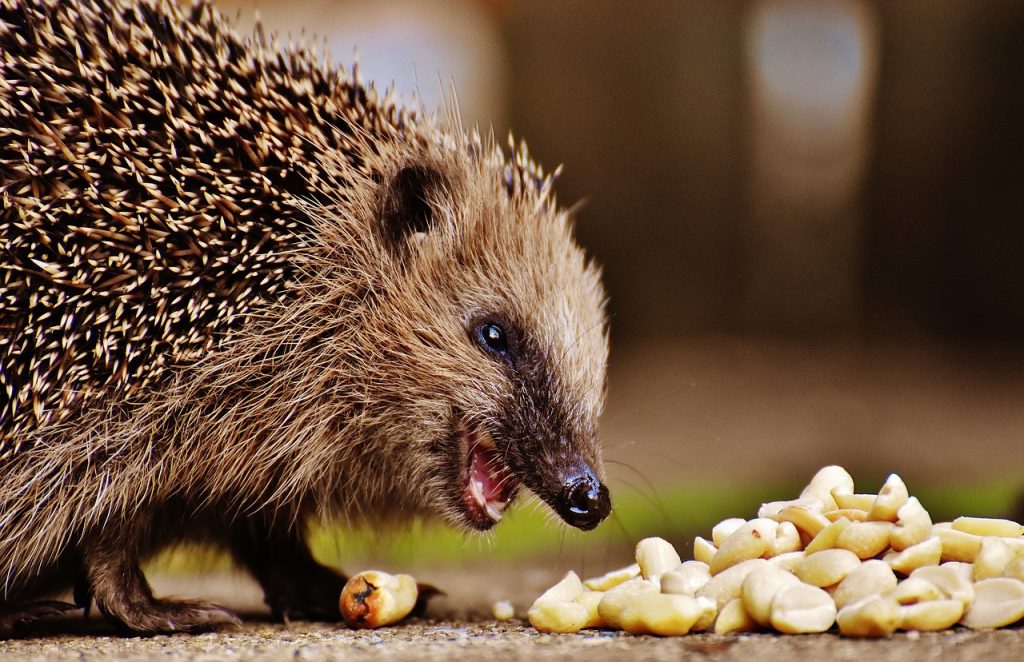Words for Eating in Russian Posted by Maria on Dec 8, 2016 in language
Most learners will know the word есть, to eat. However, there are many other synonyms of this word, some of which are not very commonly used. Recognizing them can greatly enrich your Russian vocabulary.
Есть
This is the word most people will know. Note the irregular conjugation:
| я | ем | мы | едим |
| ты | ешь | вы | едите |
| он, она, оно | ест | они | едят |
The past forms are ел (masculine), ела (feminine), ело (neuter), ели (plural).
В де́тстве я ел всё, кро́ме помидо́ров. (When I was a child, I ate everything except for tomatoes.) [Фазиль Искандер. Курортная идиллия (1999)]
Кушать
Кушать means “to eat,” as well. However, its usage is much more limited. It is considered a polite, “cutesy” word that should be used when talking to children or inviting others to eat. It is normally used by women and children when talking about oneself; its use by men is frowned upon as obsequious and mannered.
― До́лжен заме́тить, что поросёнок отме́нно хоро́ш. ― Ку́шайте на здоровьечко, ― сказа́ла хозя́йка. (“I must say the pig is exquisite.” “Help yourself,” said the hostess.) [И. Грекова. На испытаниях (1967)]
Питаться
Питаться is a formal word for eating and is used in a medical, statistical, or administrative context. It is related to питание, nutrition, and пища, food. Питаться is followed by the instrumental case.
Подтвержда́ют в компа́нии «Дикси» и жела́ние россия́н пита́ться бо́лее здоро́вой пи́щей. (The Dixy company has also confirmed that Russians wants to consume healthier foods.) [коллективный. Хиты сезона: мультиварка, весы, смартфон // «Эксперт», 2014]
Жрать
Жрать is a low-register, derogatory word, which can mean to eat greedily, indiscriminately, messily, or a lot.
Жрать у меня́ ничего́ нет, но чай и ко́фе есть. (There’s no chow at my place, but there’s tea and coffee.) [Олег Гладов. Любовь стратегического назначения (2000-2003)]
Лопать
Лопать also means to eat a lot/hungrily, but it’s not quite as rude as жрать.
Зна́ешь, па́па, удиви́тельно, как вы не стесня́етесь ло́пать свои́ отбивны́е ря́дом с убо́рщицами. (You know, Dad, it’s incredible you don’t feel embarrassed gobbling up your pounded steak next to the cleaning ladies.) [Василий Гроссман. Жизнь и судьба, часть 2 (1960)]
Трескать
Трескать is another low-register word that denotes eating enthusiastically and with enjoyment.
С друго́й стороны́, все мы зна́ем люде́й, кото́рые навора́чивают жа́реную карто́шечку, тре́скают шокола́дные конфе́ты, объеда́ются пирожка́ми и ничу́ть не толсте́ют. (On the other hand, we all know people who fill up on potato fries, guzzle chocolate candy, down pasties, and don’t put on any weight.) [Елена Светлова. Поколение XXL (2003) // «Совершенно секретно», 2003.09.01]
Шамать
Шамать originally comes from criminal argot and is a low-register word for eating. This word is fairly rare — I only really ever heard my grandfather use it regularly.
К 9 часа́м пойду́ шамать в кафе́ «Москва́» ― е́сли что-нибу́дь там бу́дет. (I will head to the Moskva café around 9 o’clock — if there is anything there.) [Г. С. Эфрон. Дневники. Т. 2 (1941-1943)]
Have you noticed people using words other than есть for eating? What words do you use or have you heard?

Build vocabulary, practice pronunciation, and more with Transparent Language Online. Available anytime, anywhere, on any device.






Comments:
Peter:
I love ‘лопать’ but I’m surprised you’ve not included ‘кормить’ … I know it’s really for animals but people seem to use it in a joking way. I didn’t know as a man I’m not supposed to use ‘кушать’ but I do remember a rather burly security guard in Moscow using it … perhaps he was in touch with his feminine side!
Maria:
@Peter Thank you, Peter. Кормить is important for “the other side of the coin” — to feed. You certainly can use it for people, for instance a nursing mother can be called кормящая мать. You are right in that корм, feed, is used with animals.
I didn’t use to know about the connotations of кушать until I was in college, so it didn’t use to strike me as off. The way our professor explained it, saying it to an adult makes one sound like a butler announcing “Dinner is served” (“Кушать подано!”).
Tex:
Not a verb to eat, but a phrase to know as either a host or guest: (Кто хочет/ты хочешь/…) ещё добавки?
Maria:
@Tex Thank you, Tex. That’s a good one. You can also use кто будет/будешь/будете ещё?
Klara:
хавать?
Maria:
@Klara Klara, that’s a great addition as far as contemporary slang is concerned.